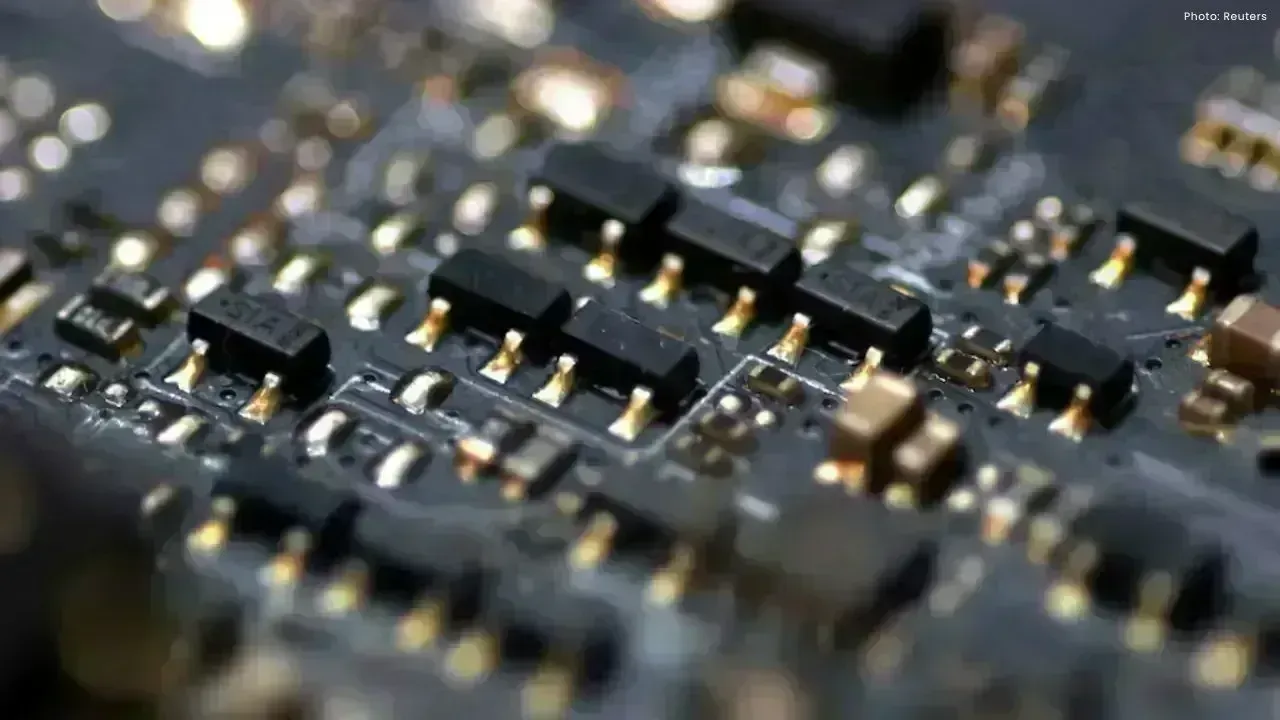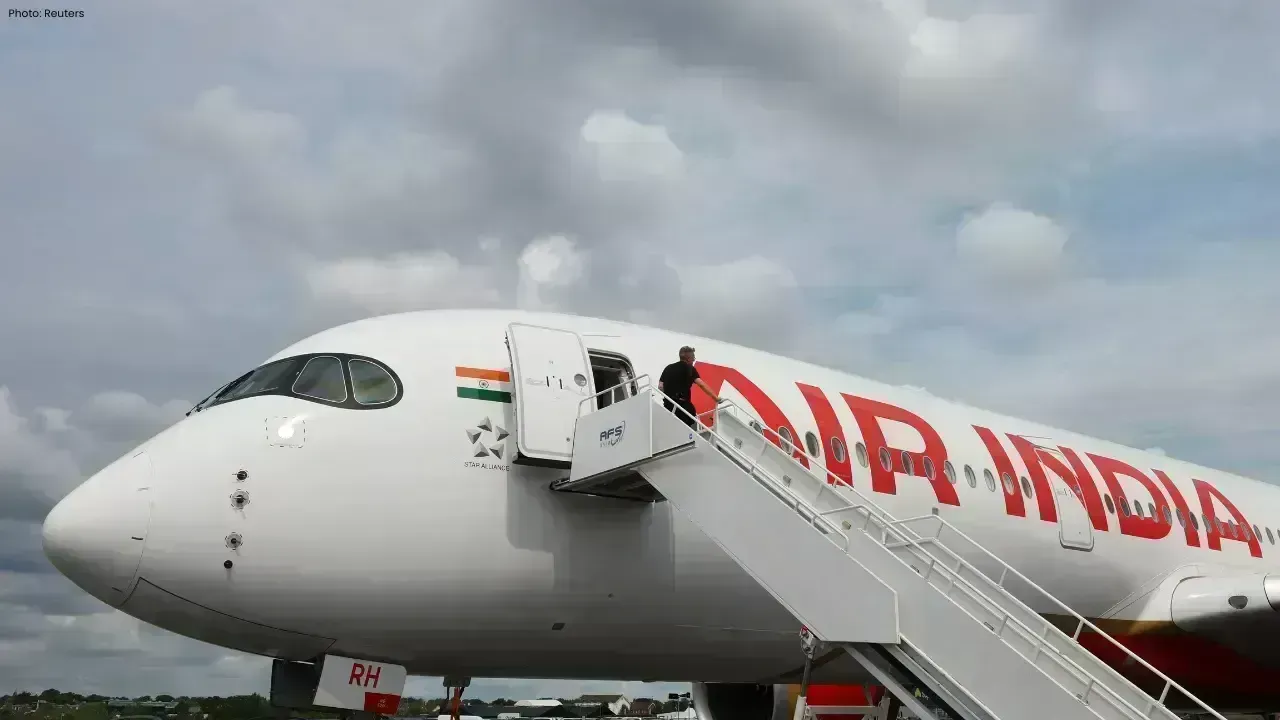You have not yet added any article to your bookmarks!

Join 10k+ people to get notified about new posts, news and tips.
Do not worry we don't spam!

Post by : Anis Farhan
Education in India has long held significant cultural and emotional importance. Families pour not just finances but aspirations into their children's educational journeys. Traditionally, learning relied heavily on textbooks, educators, memorization, and structured classrooms. However, as we move into 2025, India is poised for monumental change. The integration of artificial intelligence, adaptive learning technologies, intelligent classrooms, and skill-oriented educational methods is redefining how young people learn, think, explore, and develop.
AI is evolving from an auxiliary tool to a central component in knowledge acquisition, influencing how information is conveyed, comprehended, and mastered. With personalized lessons that adapt to each student's learning pace and AI tutors that instantly clarify questions, the future of education in India is leaning towards tailored guidance and ongoing skill enhancement.
This transformation brings significant repercussions—not only for academic achievement but also for self-esteem, creativity, and job readiness. Young Indians are gearing up for a world where adaptability, digital proficiency, and emotional resilience take precedence alongside academic achievement. AI-driven education strives to fulfill these changing demands.
The Indian education system has grappled with entrenched challenges: overcrowded classrooms, inconsistent teaching quality, significant disparities in learning outcomes, test-centric motivation, and unequal access across different regions. While urban institutions have gradually embraced technology, rural and government schools have often lagged.
Traditional instructional methods, while effective, have struggled to accommodate the varied learning preferences and paces of countless students. Some learners advance while others quietly falter. Many memorize content purely for examination purposes without deep comprehension, and skill-building has frequently been overlooked. Real-world application seldom permeated daily educational practices.
The pandemic highlighted the system's fragilities and accelerated the shift towards digital resources. By 2025, it became clear that the future of education could not rely on uniform models. AI and adaptive learning present formidable solutions capable of narrowing gaps, customizing learning experiences, and supporting educators rather than superseding them.
While the public often envisions AI in education as robots or advanced technology, the reality is more pragmatic and accessible. AI functions subtly, evaluating student performance, pinpointing strengths, identifying challenges, and tailoring content accordingly.
In classrooms, teachers leverage AI-enabled dashboards for real-time insights: determining which students are struggling, who needs reinforcement, and who is ready for advanced material. This targeted attention replaces generalized instruction.
AI-driven learning apps elucidate concepts visually and conversationally, allowing students to clear doubts promptly—even in the late hours—thanks to the invariable presence of AI tutors. Digital textbooks are enhanced with interactive features that respond to user interactions, while practice assessments adapt to challenge each student appropriately.
Additionally, AI redefines evaluation strategies. Educational institutions increasingly favor continuous assessment over singular final exams, utilizing AI to recognize trends, improvements, and areas demanding further attention.
Gone are the days of static classrooms; a dynamic learning environment has emerged.
A pivotal change in 2025 lies in the emergence of adaptive learning technologies. These platforms modify the complexity, tempo, format, and content type depending on the learner’s performance.
If a student finds fractions challenging, the system simplifies the explanations, offers visual illustrations, and reinforces understanding until clarity is achieved. Conversely, students who perform well are presented with more advanced issues to ensure their continued development.
This adaptive approach benefits shy students who may hesitate to seek assistance, as well as those requiring additional time without feeling marginalized. It engages quick learners, sparing them from monotony and stagnation.
Such individualized strategies nurturing both academic achievement and self-assurance empower students to feel recognized and valued—something larger, traditional classrooms may struggle to provide.
Contrary to the fear of AI phasing out educators, 2025 has demonstrated the contrary. Teachers have become increasingly crucial, though their responsibilities have shifted. Instead of dedicating time to repetitive grading and lecturing, they now emphasize mentorship, creativity, discussion, emotional encouragement, and real-world applicability.
While AI handles routine administrative tasks, teachers cultivate motivation, empathy, discipline, and inspiration—human elements beyond the scope of technology.
Moreover, they guide students in interpreting AI-generated suggestions, fostering understanding of how to enhance performance rather than solely adhering to automated recommendations. This blend of human insight and digital accuracy enhances the educational experience.
AI acts as an assistant to educators, not a replacement for their invaluable presence.
One of AI-driven education's most notable potentials lies in its capability to minimize long-standing urban-rural educational disparities. Students from remote and underserved areas have historically faced restrictions in accessing experienced teachers, comprehensive learning materials, and personalized attention.
By 2025, adaptive learning technologies and AI tutors have made their way into numerous such communities via affordable smartphones, governmental initiatives, and digital education outreach. Even where traditional classroom resources are sparse, AI safeguards the right to personalized learning for all children.
For the first time, students in these rural settings can engage in coding, robotics, English proficiency, science experiments, and advanced mathematics through AI-supported platforms. Parents witness increased self-esteem in their children, and educators feel supported instead of overwhelmed.
This democratization of high-quality education could become one of India's most significant achievements in the upcoming decade.
With the world evolving swiftly, future job markets necessitate skills extending beyond the confines of traditional education. AI and adaptive learning are steering India's youth towards practical, creative, and future-ready knowledge.
Education now encompasses modules in coding, data literacy, financial literacy, communication, problem-solving, teamwork, design thinking, and emotional intelligence. AI monitors students’ strengths and recommends pathways that align with their interests and capacities.
Young learners unearth their talents early, be it in writing, animation, scientific inquiry, entrepreneurship, or technology. With customized suggestions, they can methodically cultivate expertise.
This reorientation equips youth for an adaptive workforce where flexibility is the most sought-after trait.
Conventional testing has often prioritized memory over comprehension, with the pressure of marks overshadowing the joy of learning. In 2025, AI-enhanced assessment systems endorse a more holistic approach.
Students now engage in numerous smaller assessments that gauge progress over time, in lieu of relying solely on final evaluations. AI designs practice sets tailored to weaker areas, ensuring students genuinely master concepts before advancing.
This strategy alleviates exam-related anxiety while establishing true competence. Educators gain deeper insights into student progress, thereby facilitating personalized support.
The focus has gracefully transitioned from “What did you memorize?” to “How much did you understand and retain?”
By 2025, India’s ed-tech industry has blossomed into a rich ecosystem. Learning applications, VR-based science modules, AI tutors, adaptive curriculum builders, coding platforms, and digital classrooms coalesce to enhance educational experiences.
Startups are creating tailored solutions for schools, home-based learning, competitive exam preparation, vocational training, and skill development. Many platforms now incorporate regional languages to engage learners beyond urban centers. Some utilize gamification for increased engagement, while others develop sophisticated analytics tools for educational institutions.
This vibrant ecosystem provides options and flexibility for parents, educators, and students alike.
The educational frameworks of 2025 go beyond merely academic requirements; they actively identify signs of stress, burnout, disengagement, or emotional imbalance among students. Learning analytics can detect sudden dips in performance or declining engagement levels.
Certain applications gently encourage learners to take breaks, practice mindfulness, or seek help. Teachers receive notifications when students may need emotional support.
This focus on wellness within learning is crucial during a time when academic pressures and digital saturation are impacting youth mental health.
While AI cannot substitute human empathy, it can be a crucial ally in ensuring that emotional challenges are not overlooked.
Despite significant advancements, hurdles persist. Not all educational institutions possess the infrastructure needed to ensure seamless integration. Although smartphone and device penetration rates are high, internet reliability is inconsistent. Educators require continuous training to adapt to new technologies, while parents must comprehend how AI can enhance rather than replace traditional learning.
Concerns regarding data protection also loom large. As AI analyzes student data, robust safeguards are vital to protect personal information.
The journey of transition continues, with promising pathways emerging.
The next chapter of education in India is set to advance even further. AI will evolve into more intuitive systems, capable of recognizing emotional contexts, learning styles, and motivational triggers. Innovations like virtual and augmented reality may usher in immersive labs, historical re-enactments, and problem-solving simulations both in homes and schools.
Students will embark on personalized educational journeys aligned with their career inclinations. Learning will embrace flexibility, allowing the blending of academic knowledge, vocational training, and creative exploration.
The most profound change will lie in the perspective students adopt. Indian youth will begin to view education not merely as an obligation, but as a lifelong adventure supported by technology, mentors, and a plethora of evolving opportunities.
The realm of education in India isn’t characterized by machines displacing individuals; instead, it signifies technology enhancing human capabilities. AI and adaptive learning are enabling young Indians to cultivate self-understanding, learn at their own rhythm, develop authentic skills, and prepare proficiently for an ever-changing world.
This evolution is fundamentally centered on humanity, aimed at empowering educators, supporting families, and providing every child with a well-deserved education that is personalized, contemporary, inclusive, and emotionally nurturing.
As we step into 2025, classrooms signal just the beginning of a journey where every learner can flourish in their unique manner, steered by innovation and fortified by opportunities.
This article offers broad insights into the changing educational dynamics in India and should not be construed as dedicated academic or policy guidance. Readers are encouraged to verify specific institutional practices and protocols.










US Raid in Caracas Killed 47 Venezuelan Troops, Including 9 Women Soldiers
US forces attacked Caracas, killing 47 Venezuelan soldiers—including 9 women—and 32 Cuban soldiers d

Iran Targets Starlink as Musk’s Internet Lifeline Faces New Test
Iran’s tough action on dissent puts Elon Musk’s Starlink under pressure, as free satellite internet

Air India Airbus A350 Engine Damaged by Cargo Container in Delhi Incident
An Air India A350’s engine sucked in a cargo container while taxiing in Delhi, grounding the flight.

Pakistan Expands Arms Influence, Eyes Islamic NATO in Arab World
Pakistan strengthens military ties in the Arab world, negotiating arms deals and a trilateral Islami

Harvard Drops to Third in Global Science Ranking, China Leads Again
Harvard University falls to third in the CWTS Leiden 2025 Science ranking, while Chinese universitie

Canada, China Open New Chapter With Strategic Partnership Talks
Canada and China begin rebuilding relations as Prime Minister Mark Carney meets President Xi Jinping